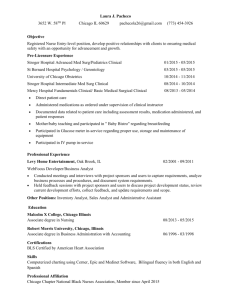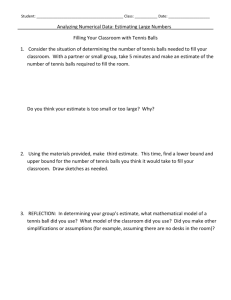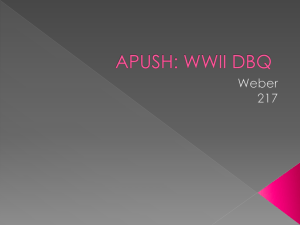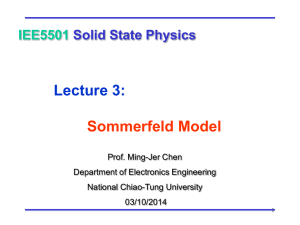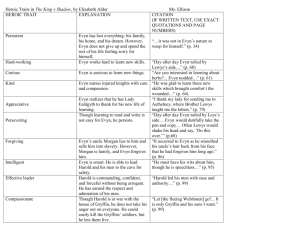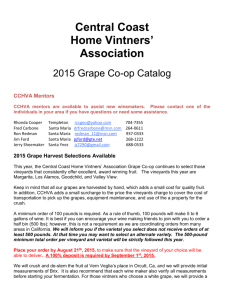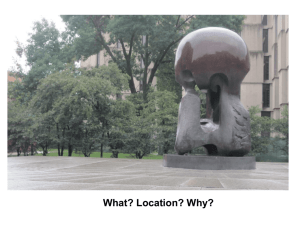Biographies of Edison lecturers
advertisement
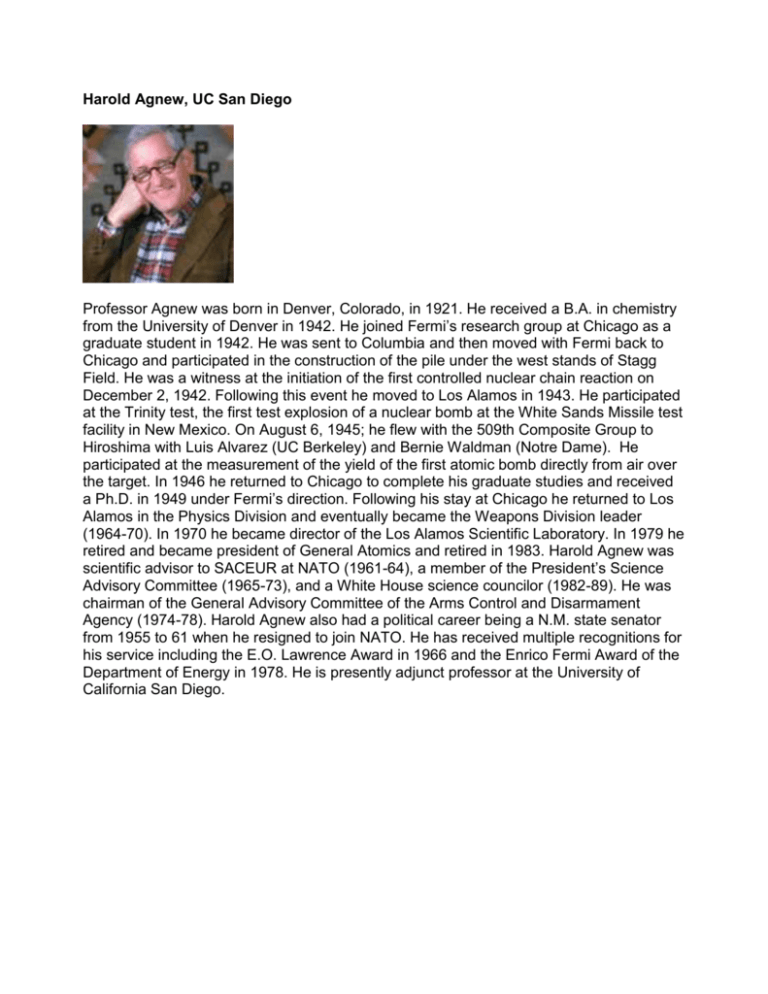
Harold Agnew, UC San Diego Professor Agnew was born in Denver, Colorado, in 1921. He received a B.A. in chemistry from the University of Denver in 1942. He joined Fermi’s research group at Chicago as a graduate student in 1942. He was sent to Columbia and then moved with Fermi back to Chicago and participated in the construction of the pile under the west stands of Stagg Field. He was a witness at the initiation of the first controlled nuclear chain reaction on December 2, 1942. Following this event he moved to Los Alamos in 1943. He participated at the Trinity test, the first test explosion of a nuclear bomb at the White Sands Missile test facility in New Mexico. On August 6, 1945; he flew with the 509th Composite Group to Hiroshima with Luis Alvarez (UC Berkeley) and Bernie Waldman (Notre Dame). He participated at the measurement of the yield of the first atomic bomb directly from air over the target. In 1946 he returned to Chicago to complete his graduate studies and received a Ph.D. in 1949 under Fermi’s direction. Following his stay at Chicago he returned to Los Alamos in the Physics Division and eventually became the Weapons Division leader (1964-70). In 1970 he became director of the Los Alamos Scientific Laboratory. In 1979 he retired and became president of General Atomics and retired in 1983. Harold Agnew was scientific advisor to SACEUR at NATO (1961-64), a member of the President’s Science Advisory Committee (1965-73), and a White House science councilor (1982-89). He was chairman of the General Advisory Committee of the Arms Control and Disarmament Agency (1974-78). Harold Agnew also had a political career being a N.M. state senator from 1955 to 61 when he resigned to join NATO. He has received multiple recognitions for his service including the E.O. Lawrence Award in 1966 and the Enrico Fermi Award of the Department of Energy in 1978. He is presently adjunct professor at the University of California San Diego.
